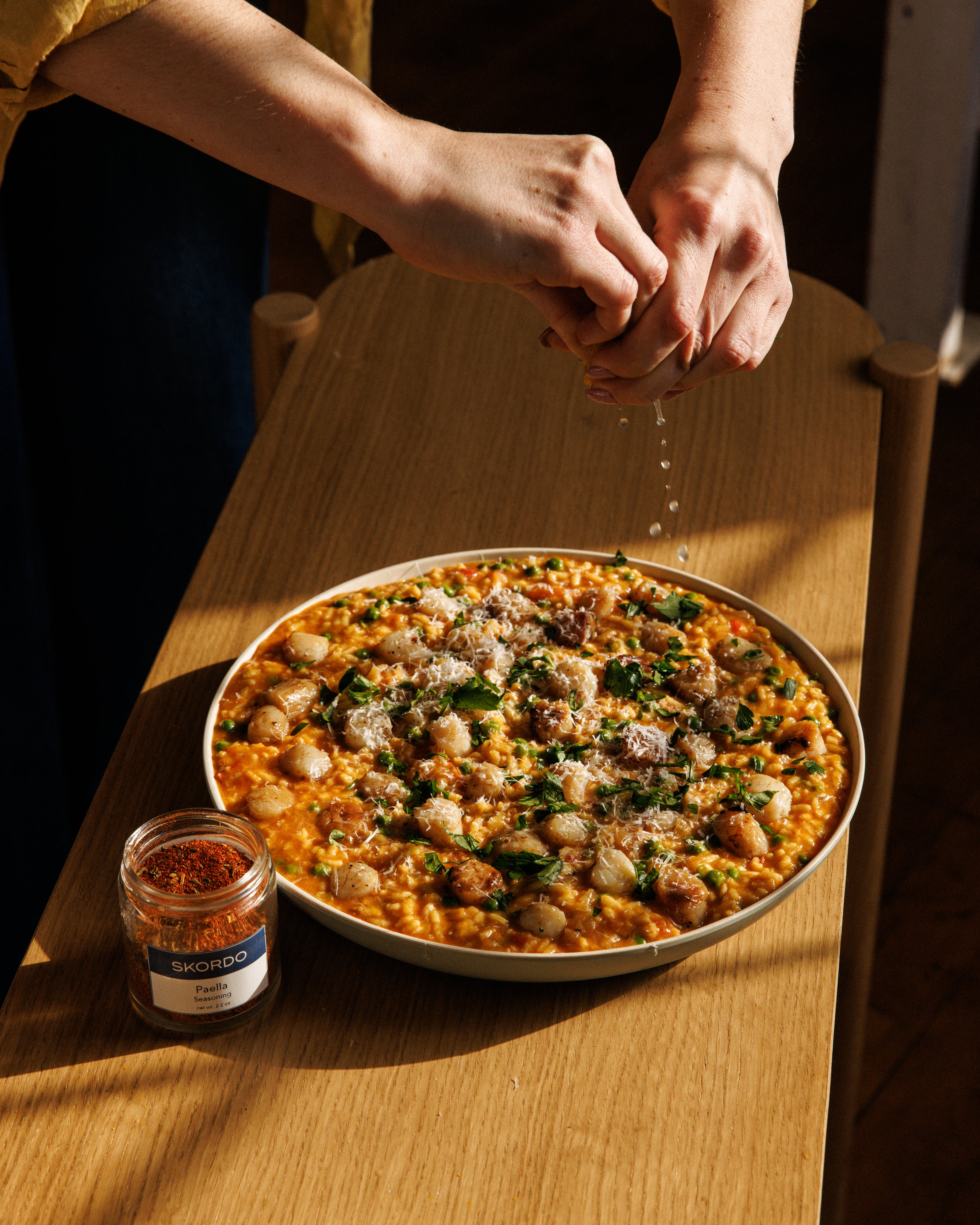"If there is one smell to match the emblematic image of the Old City of Jerusalem, one odor that encapsulates the soul of this ancient city nestling in the Judean Mountains, it is the smell of Za'atar." -- Yotam Ottolenghi, Jerusalem
This iconic recipe from Yotam Ottolenghi is a delicious, balanced introduction to home-cooked Middle Eastern food. It is very simple to prepare but boasts substantial flavor. A delicious starter, vegetarian main course, or side for a roasted lamb or steak, we find this dish to be incredibly versatile while still being unique!
Ingredients:
- 1 large butternut squash, sliced
- 2 red onions, cut in half then sliced 1/2" thick
- 3 tablespoons olive oil
- 3 tablespoons tahini paste
- 1 tablespoons lemon juice
- 2 tablespoons water (as needed)
- 1 small clove garlic, crushed
- 3 tablespoons pine nuts
- 1/2 tablespoon Israeli Za’atar
- 1 tablespoon coarsely chopped flat-leaf parsley
- Kosher salt and freshly ground black pepper
Directions:
- Preheat the oven to 475 degrees F.
- Prepare your vegetables and spread on a baking sheet. Drizzle with olive oil and season with salt and pepper. Roast for 30 -35 minutes, until your vegetables have taken on color and are cooked through. Make sure to watch the onions as they may cook faster than the squash and would need to be removed earlier.
- Remove from the oven and let the vegetables cool.
- To make your dressing, whisk together the tahini, lemon juice, and garlic. This will likely be too thick to drizzle. Add 1/2 tbsp. of water to the mixture until it resembles the consistency of honey.
- Heat the remaining 1.5 tsp. of oil in a small saucepan over medium heat. Add the pine nuts and 1/4 tsp. salt and cook for 2 minutes, stirring constantly, until the nuts are golden brown. Remove from heat.
- Grind the Israeli Za'atar in a mortar and pestle for about a minute to release the fragrance and oils of the sumac and thyme.
- To serve, spread the vegetables out on a large serving platter and drizzle with your tahini dressing. Sprinkle with the toasted pine nuts and the oil from the pine nut pan, along with the ground za'atar and parsley.
Source: Jerusalem by Yotam Ottolenghi


